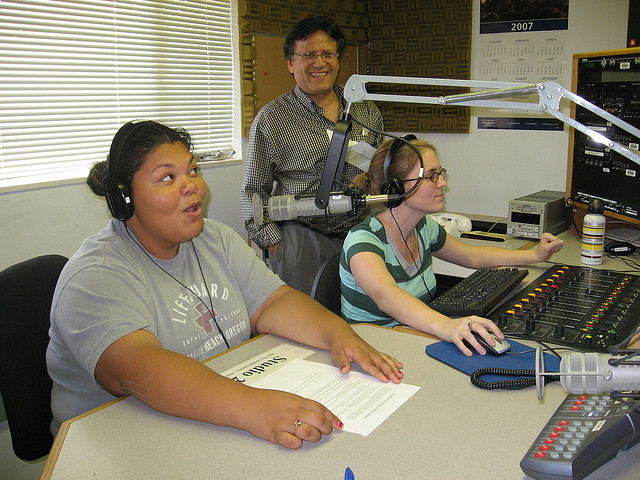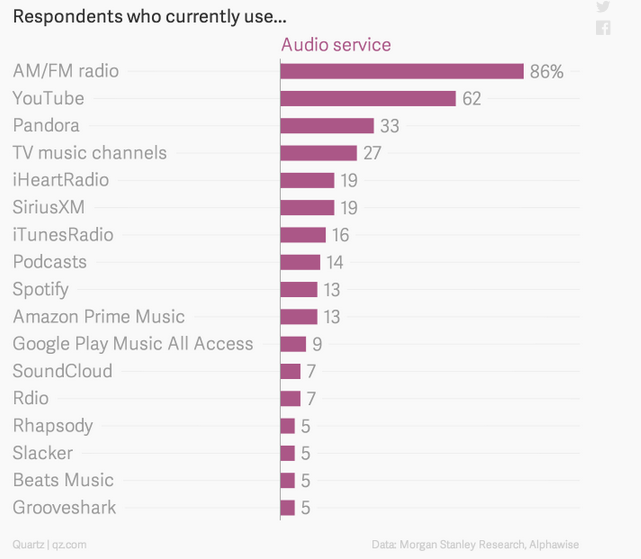Join the Airtime team in celebrating World Radio Day 2015

February 13th was established by UNESCO as World Radio Day, an annual event raising awareness of the importance of radio and enhancing international cooperation among broadcasters.
Every morning when I wake up, I turn on the radio to listen to the latest news. It’s an extremely easy way to get the news fast, while getting ready for the upcoming adventures of the day. I can only imagine one slightly faster way to get your news, which is to have the news projected on the walls of your bathroom while you take your morning shower. But wait… we’re not in 2020 yet, and the iPhone isn’t very good with moisture.
Actually, 2015 marks the 105th anniversary of the first public radio broadcast, which was an Enrico Caruso's opera performance broadcasted from the Metropolitan Opera House to various locations across New York City.

Public radio broadcasting started with a flip of a switch in Metropolitan Opera House I Photo by Bettmann/CORBIS
Panic in the streets of New York City
In its beginning, radio struggled to be widely accepted. “Skeptics blamed radios for the vibrations of bed springs, the creaking of floorboards, even a vomiting child. In Wisconsin, people thought radios could stop cows from producing milk”, says Michele Hilmes, professor of media and cultural studies at the University of Wisconsin at Madison. This reminds me of the skepticism about mobile phones causing cancer.
The mass adoption of radio caused real world panic. On October 30 1938, CBS broadcasted an adaptation of a science fiction novel written 40 years earlier: The War of the Worlds, by H.G. Wells. It was performed by Orson Welles' Mercury Theater group. It sounded like a real broadcast and made people believe that New York City was under attack by Martians! The broadcast appeared to be authentic and put newspaper offices, radio stations and police under attack from people scared of the invasion, seeking advice on how to get away from the city, some of them rushing out of their homes with wet towels on their faces to keep them protected from the Martian poison gas. You can listen to the record of the broadcast here. Some people believe this broadcast contributed to diminishing the trustworthiness of the media.
Is the radio star dead?
According to a survey of 2,016 American adults conducted by Morgan Stanley in November 2014, broadcast radio appeared to be a remarkably resilient and trustworthy medium.

Results of the Morgan Stanley’s study conducted in November 2014 I Photo by qz.com
To many, television and Internet may seem like a means of news distribution, education and entertainment that is slowly killing the radio. But advancing technology doesn’t have to necessarily represent a threat to radio, it can serve to stimulate radio stations to come up with new ways to approach their audiences. For example, the BBC iPlayer Radio app makes it possible for radio fans to access thousands of worldwide stations, BBC Radio 1 also uses social media and video to appeal to a younger audience and is producing and providing content which is easily accessible and consumed on tablets.
Not only is the consumption of radio content becoming easier, but radio production is simplifying as well. Barriers to starting your own radio station are very low these days. You don’t need a broadcasting license when you have access to the Internet and can produce whatever content you like!
This year’s theme of World Radio Day is youth. This is a good fit for our Microwav.fm project in the South Caucasus, which aims to bring young people together across political divides through their shared love of music. We’ll be demonstrating Airtime at the World Radio Day event in London, at SOAS in Russell Square (the event is free to attend, but registration is required).
If you can’t make it to London, there are many other ways that you can celebrate World radio day this year. Don’t forget to join the global conversation by posting your support, including the official #worldradioday hashtag and tagging @UNESCO on Twitter.
